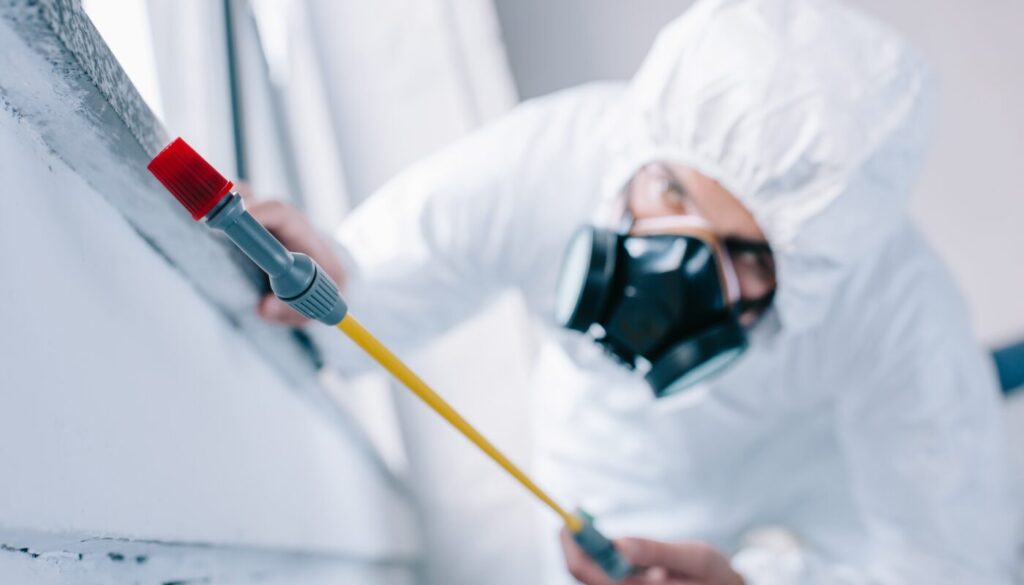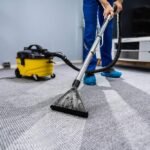Pest management is a critical aspect of maintaining a healthy and comfortable living environment. Homeowners often face challenges posed by various pests, which can cause damage to property and pose health risks. Understanding effective pest management strategies can help homeowners protect their homes and families. This guide provides an overview of essential pest management techniques and the importance of professional pest control services.
Understanding the Importance of Pest Management
Pests, such as rodents, insects, and termites, can significantly impact the integrity of a home. They can cause structural damage, contaminate food, and spread diseases. Thus, implementing effective pest management strategies is crucial for:
- Preventing Damage: Early detection and control can prevent significant structural damage, particularly from wood-destroying pests like termites.
- Protecting Health: Many pests carry diseases that can affect humans and pets. Effective pest management helps minimize health risks associated with infestations.
- Maintaining Property Value: A pest-free home is more attractive to potential buyers. Regular pest management can help maintain or increase property value.
Identifying Common Pests
The first step in effective pest management is identifying the types of pests commonly found in homes. Some of the most prevalent pests include:
- Rodents: Mice and rats are notorious for invading homes, often seeking food and shelter. They can cause damage to insulation, wiring, and food supplies.
- Insects: Ants, cockroaches, and termites are common household insects. While some may be merely a nuisance, others, like termites, can cause significant damage.
- Wildlife: Raccoons, squirrels, and other wildlife can invade homes, particularly in urban areas. They can pose risks to health and safety.
Understanding these pests and their behaviors is vital in developing effective management strategies.
Preventative Measures
1. Regular Inspections
Conducting regular inspections of your home is one of the most effective pest management strategies. Look for signs of pest activity, such as droppings, gnaw marks, and nests. Pay special attention to areas like basements, attics, and crawl spaces.
2. Seal Entry Points
Pests often enter homes through small openings. Sealing cracks and gaps around windows, doors, and foundations can significantly reduce the likelihood of an infestation. Use caulk or weather stripping to close off entry points.
3. Maintain Cleanliness
Keeping a clean home is essential in preventing pest infestations. Regularly cleaning kitchens, dining areas, and other common spaces can help deter pests. Store food in airtight containers, dispose of garbage regularly, and avoid leaving pet food out overnight.
4. Manage Outdoor Areas
The exterior of your home can also attract pests. Trim overgrown vegetation, remove standing water, and keep firewood stored away from the house. Maintaining your yard can help create a barrier between pests and your home.
Integrated Pest Management (IPM)
Integrated Pest Management (IPM) is a holistic approach to pest management that emphasizes prevention and control strategies that minimize risks to people and the environment. IPM involves:
- Monitoring: Regularly inspect and monitor for pests.
- Identification: Correctly identify the pest species to apply appropriate control measures.
- Prevention: Implementing preventive measures to reduce the chances of infestation.
- Control: Utilizing various control methods, including biological, cultural, mechanical, and chemical interventions, when necessary.
This approach not only focuses on eradicating pests but also emphasizes long-term solutions that minimize harm to the environment and human health.
When to Consider Pest Control Services
While homeowners can take several steps to manage pests, there are situations where professional pest control services are advisable. These include:
- Severe Infestations: If pests are already causing significant damage or health risks, professional intervention may be necessary.
- Health Concerns: If pests pose a health threat to your family, such as rodents or certain insects, it’s essential to seek professional help.
- Invasive Species: Some pests require specialized knowledge and equipment for effective control. Professionals are trained to handle these situations.
Choosing the Right Pest Control Services
When selecting a pest control service, consider the following factors:
- Reputation: Look for companies with positive reviews and testimonials. A good reputation is often indicative of effective services.
- Experience: Choose a company with experience in dealing with specific pests. Experienced professionals are more likely to provide effective solutions.
- Integrated Approach: Opt for services that use IPM principles. This ensures a holistic approach to pest management.
- Certification: Ensure the company is licensed and certified to operate in your area. This guarantees that they adhere to industry standards and regulations.
Conclusion
Effective pest management is essential for maintaining a safe and healthy home. By implementing preventative measures, understanding common pests, and considering professional pest control services when necessary, homeowners can protect their properties and families from the dangers posed by pests. A proactive approach to pest management not only preserves the integrity of your home but also enhances your overall quality of life.







